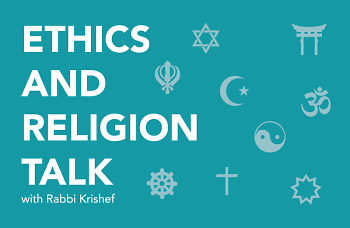Rev. Ray Lanning, a retired minister of the Reformed Presbyterian Church of North America, responds:
"Christians believe that the one true God exists eternally in three persons: Father, Son, and Holy Spirit. As the third person of the Godhead, the Holy Spirit possesses all the elements of personality, such as identity, intelligence, and volition. As God, He shares fully in all the attributes of deity. Such is the common faith of all Christians, as set forth in the Ecumenical Creeds. He is introduced to us as “the Spirit of God,” who “moved upon the face of the waters” at creation (Genesis 1:2). His great work in the natural world is to give life to all living things, and He works pervasively in what we today call the biosphere (Psalm 104: 30). Reformed Christians believe that His great work in redemption is to apply all the benefits of Christ’s atoning work to the hearts and minds of God’s elect, using the preaching of the gospel to work faith in their hearts, uniting them to Christ in an unbreakable bond of life and grace, and keeping them by His indwelling presence and almighty power to the end of time. I must leave spokespersons from other traditions to speak for themselves."
Rev. Salvatore Sapienza, the Senior Pastor at Douglas Congregational United Church of Christ in Saugatuck/Douglas, responds:
"The Holy Spirit is part of the Christian doctrine of the Trinity, a concept created by the early Church fathers in the 4th century, nearly 300 years after Jesus died. Jesus never mentioned the word “Trinity,” because he never heard of it.
“If the Trinity was never mentioned again, most Christians wouldn’t even notice,” theologian Karl Rahner once said, and it’s true that many Christians today are confused by the “three-in-one” aspect of God. If we say there’s only one God, then how can there be three?
In Hinduism (which, like Christianity, is a monotheistic faith) there are many deities, such as Brahma, Vishnu, and Shiva. These are not different gods but different expressions of the one true God.
In a similar manner, Christians believe that God is one, but can also be expressed in the Son and the Holy Spirit.
In his book "The Divine Dance: The Trinity & Your Transformation," Richard Rohr writes that when the early Church fathers were explaining the Trinity, they used the Greek word “perichoresis,” which is where our word choreography comes from. They were trying to explain that the Trinity was a dance of the Lover, the Beloved, and Love Itself."
Father Kevin Niehoff, O.P., a Dominican priest who serves as Judicial Vicar, Diocese of Grand Rapids, responds:
"For Roman Catholics, there is one God in three persons. These are the Father, the Son, and the Holy Spirit. The Holy Spirit is the third person of the Trinity. “The term ‘Spirit’ translates from the Hebrew word ruah, which, in its primary sense, means breath, air, wind” (Catechism of the Catholic Church, p. 182). I am unable to speak of an equivalent understanding of other traditions."
Fred Stella, the Pracharak (Outreach Minister) for the West Michigan Hindu Temple, responds:
"Ever since Christians and Hindus began dialoging and debating, there has been an effort to see what common denominators might exist. One theological element that pundits have explored is that of the Trinity. Well, some Hindus are very comfortable envisioning a Hindu Trinity that comprises of Brahma, Vishnu and Shiva. But this works only to a certain point, as all the gods and goddesses are ultimately expressions of Brahman (not Brahma), who is the ultimate sole presence of the universe.
But some Hindus look to another way to conceive of a form of Trinity; this one is void of any concept of “3 persons.” That would be Sat, Tat and Om. Very simply put, Sat represents that aspect of Divinity that exists beyond creation. If the entire universe were to implode, Sat would remain. Tat is Divinity expressed in creation. That is, God in nature. And Om is that primal expression that is more or less the “bridge” between Tat and Sat. Ultimately, all of these aspects are elements of a primal unity. There are many Hindus who see a link between the Holy Ghost and Om. This is because in the Gospel of John (14:16), Jesus says that he will send a “comforter.” Some Hindu theologians read this through a Dharmic lens and relate it to the “comfort” that devotees feel when they actually hear the sound of Om in meditation."
My response:
I cannot respond to the question asking for a definition of the holy spirit. I can say, however, that Jewish mysticism envisions a process of creation in which the infinite God emanated into the universe with ten distinct qualities or aspects.
This column answers questions of Ethics and Religion by submitting them to a multi-faith panel of spiritual leaders in the Grand Rapids area. We’d love to hear about the ordinary ethical questions that come up in the course of your day as well as any questions of religion that you’ve wondered about. Tell us how you resolved an ethical dilemma and see how members of the Ethics and Religion Talk panel would have handled the same situation. Please send your questions to [email protected].
The Rapidian, a program of the 501(c)3 nonprofit Community Media Center, relies on the community’s support to help cover the cost of training reporters and publishing content.
We need your help.
If each of our readers and content creators who values this community platform help support its creation and maintenance, The Rapidian can continue to educate and facilitate a conversation around issues for years to come.
Please support The Rapidian and make a contribution today.
